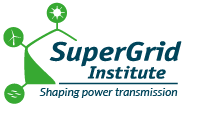Influence of Stabilization Time and Post Processing Methods on the Accuracy of DC Conductivity Measurements
Abstract
With the deployment of DC networks, the study of conduction behaviors in insulating materials is fundamental for the development of equipment. In particular, the measurement method to determine the materials’ volume and surface conductivity must be reliable enough to provide a consistent value under a reasonable measurement time. One method to determine these conductivities is to measure the polarization and depolarization currents of a material subjected to direct voltage. Because the related physical mechanisms involved are relatively slow, each measurement of these currents can extend over several hours or days. Therefore, the aim of this work is to study the influence of the measurement duration and method on the final DC conductivity estimations, as well as to determine more optimal duration for most commonly used materials. Measurements were performed simultaneously on four different materials including pure epoxy, alumina filled epoxy, silica filled epoxy and silicone in a controlled environment with temperature regulation according to the IEC 62631 standard. For each experimental condition, polarization and depolarization currents are measured for durations of 72 hours for volume conductivity and 24 hours for surface conductivity. Volume and surface DC conductivity estimation using different analysis methods is presented in this paper. From the presented results, optimal measurement time of 8 hours for volume measurement and 3 hours for surface measurement can be chosen in order to compromise between the accuracy of the results and the measurement time.
A. Perez, T. Vu-Cong, F. Jacquier, A. Girodet & F. Gentils (Schneider Electric)
Presented at ICHVE 2022


